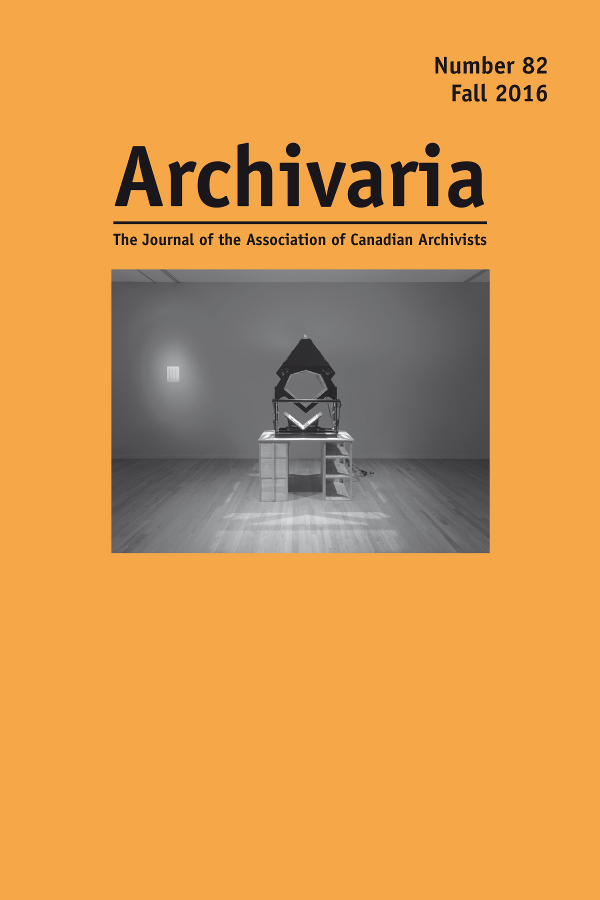The Spectre in the Archive: Truth, Reconciliation, and Indigenous Archival Memory
Abstract
This article places archival science, Indigenous studies, and critical theories on race and colonialism in dialogue so as to explore two court cases related to records and the Truth and Reconciliation Commission in Canada. It questions on what basis the courts would rule that some records were to be produced, others temporarily preserved, and yet others destroyed. Considering recent scholarship calling for a shift from a human rights and diversity rhetoric in the archival conversation, I argue that the discursive disappearance or spectralization of Indigenous people plays a crucial role in dispossessing them of their lands, resources, and cultural heritage. Noting the tensions between a desire to be remembered and a longing for oblivion, I argue that the incorporation of records by or about Indigenous people into the national settler archival repository is crucial for the constitution of a settler historical archival memory (at the expense of an Indigenous one) that transforms Canadian national shame and guilt into national glory and honour. Conceptualizing the Canadian national archive as a haunted site of fear and desire, national guilt and national triumph, I show how the histories of colonial violence are revealed or brought to the fore by the Truth and Reconciliation Commission court cases.
RÉSUMÉ
Cet article place la science archivistique en dialogue avec les études autochtones et les théories raciales critiques afin d’explorer deux cas de cour liés aux documents d’archives et à la Commission de vérité et réconciliation au Canada. Il examine sur quelle base la cour pouvait conclure que certains documents devaient être produits, d’autres conservés de façon temporaire, et d’autres encore, détruits. En tenant compte des études récentes qui préconisent un changement de la rhétorique au sujet des droits humains et de la diversité dans le discours archivistique, je soutiens que la disparition discursive ou la « spectralisation » des peuples autochtones joue un rôle crucial dans le processus de dépossession de leurs terres, de leurs ressources et de leur héritage culturel. En prenant note des tensions qui existent entre le désir d’être inscrit dans la mémoire et l’envie d’être oublié, j’affirme que l’incorporation de documents créés par des peuples autochtones ou à leur sujet dans les archives nationales du colonisateur demeure cruciale à la constitution de la mémoire historique archivistique de ce dernier (au détriment d’une mémoire historique archivistique autochtone), qui transforme la honte et la culpabilité nationales canadiennes en gloire et honneur nationaux. En conceptualisant le centre d’archives national canadien comme un lieu hanté par la crainte et le désir, et par la culpabilité et le triomphe nationaux, je montre comment les cas de cour de la Commission de vérité et réconciliation révèlent ou mettent en évidence les histoires de violence coloniale.
Authors of manuscripts accepted for publication retain copyright in their work. They are required to sign the Agreement on Authors' Rights and Responsibilities that permits Archivaria to publish and disseminate the work in print and electronically. In the same agreement, authors are required to confirm that "the material submitted for publication in Archivaria, both in its paper and electronic versions, including reproductions of other works (e.g. photographs, maps, etc.) does not infringe upon any existing copyright." Authors of manuscripts accepted for publication retain copyright in their work and are able to publish their articles in institutional repositories or elsewhere as long as the piece is posted after its original appearance on archivaria.ca. Any reproduction within one year following the date of this agreement requires the permission of the General Editor.





